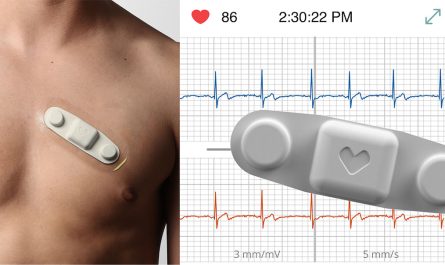HER-2 negative breast cancer, also known as HER2- breast cancer, accounts for around 70% of all breast cancer cases. It is characterized by the lack or low levels of human epidermal growth factor receptor 2 (HER2) protein on the surface of the cancer cells. Targeted therapy drugs that block the growth and spread of cancer by interfering with specific molecules involved in tumor growth and progression are gaining popularity for the treatment of HER-2 negative breast cancer.
The Global HER-2 Negative Breast Cancer Market is estimated to be valued at US$ 15982.51 Bn in 2024 and is expected to exhibit a CAGR of 10% over the forecast period 2024 To 2031.
Key Takeaways
Key players operating in the HER-2 negative breast cancer are Robert Bosch GmbH (Germany), HELLA KGaA (Germany), Continental AG (Germany), Denso Corporation (Japan), Delphi Automotive PLC (U.K.), Autoliv Inc. (Sweden), and Valeo S.A. (France).
The key opportunities in the HER-2 negative breast cancer market include increasing research for developing combination therapies and targeted therapy drugs with novel mechanisms of action.
Technological advancements like liquid biopsies that detect cancer by analyzing blood samples are helping in early detection of recurrence and development of resistance to treatment in HER-2 negative breast cancer patients.
Market drivers:
The increasing prevalence of breast cancer worldwide is a major driver for the HER-2 Negative Breast Cancer Cases Market Size . As per estimates, around 2.3 million new cases of breast cancer were diagnosed globally in 2020. Moreover, growing research funding from private and government bodies for drug development is also fueling market growth. The National Cancer Institute invested $639.9 million in breast cancer research in 2020.
Current challenges in HER-2 Negative Breast Cancer Market:
The key challenges faced by the HER-2 negative breast cancer therapeutics market include high treatment costs, lack of awareness, and late-stage diagnosis. Many patients find the costs of newer targeted therapies and immunotherapies prohibitive. More education programs are required to spread awareness about symptoms and risks. Most cases are still diagnosed at later stages when treatment is more difficult. More screening programs can help detect breast cancer early.
SWOT Analysis:
Strength: Growing research into molecular subtyping for precision treatment. New combinations of existing drugs are proving effective against HR+/HER2- tumors.
Weakness: Histological and molecular heterogeneity within tumor subtypes makes targeted therapies challenging. Resistance develops rapidly against some newer treatments.
Opportunity: Immunotherapies are showing promise for HER2-negative disease, representing a new treatment approach. Combinations of immunotherapies and other drugs could have synergistic effects.
Threats: Competing priorities and budgets for healthcare providers amid the pandemic may slow new drug approvals and reimbursements for expensive therapies. Patent expiries of blockbuster drugs add pricing pressure.
Geographical Regions:
North America currently accounts for the largest share of the global HER-2 negative breast cancer market, mainly due to high healthcare spending and growing adoption of premium-priced targeted therapies and immunotherapies. However, Asia Pacific is poised to emerge as the fastest-growing regional market in the coming years. This growth can be attributed to rising healthcare infrastructure, greater affordability of newer drugs, and increasing diagnosis rates among growing middle-class populations in China and India.
Fastest Growing Region:
Asia Pacific region is expected to register the highest CAGR in the HER-2 negative breast cancer market during the forecast period. This is because of increasing healthcare expenditure, growing awareness about breast cancer, and large patient population. Also, medical tourism and strategic initiatives by global pharmaceutical companies to introduce low-cost biosimilars will boost therapy access across South and East Asian countries.
*Note:
1.Source: Coherent Market Insights, Public sources, Desk research
2.We have leveraged AI tools to mine information and compile it

